To mark the International Day of Peace 2017, we asked humanist thought leaders from around the world for their views on this central human value: peace.
The ambition to achieve “world peace” can sound like a cliche, or at least a remote dream. Sometimes the whole concept is dismissed: “peacenik” is a derogatory term, “peace” itself may be regarded as long-term unobtainable. And yet, this near-universal value of peace is a serious concept. Human beings have known greater or lesser degrees of peace, just as we know greater or lesser degrees of freedom. And through our actions we can contribute to building or maintaining peace, or we can imperil peace, engendering enmity and violence.
So, is peace as such something we can work toward? What is peace and why is it desirable? What needs to be in place for peace to be achieved and sustained? — or what obstacles must be overcome to realise long-term peace?
We asked some leaders of the humanist movement, activists and thought leaders from around the world for their views on the value and attainability of peace. Their responses follow below.
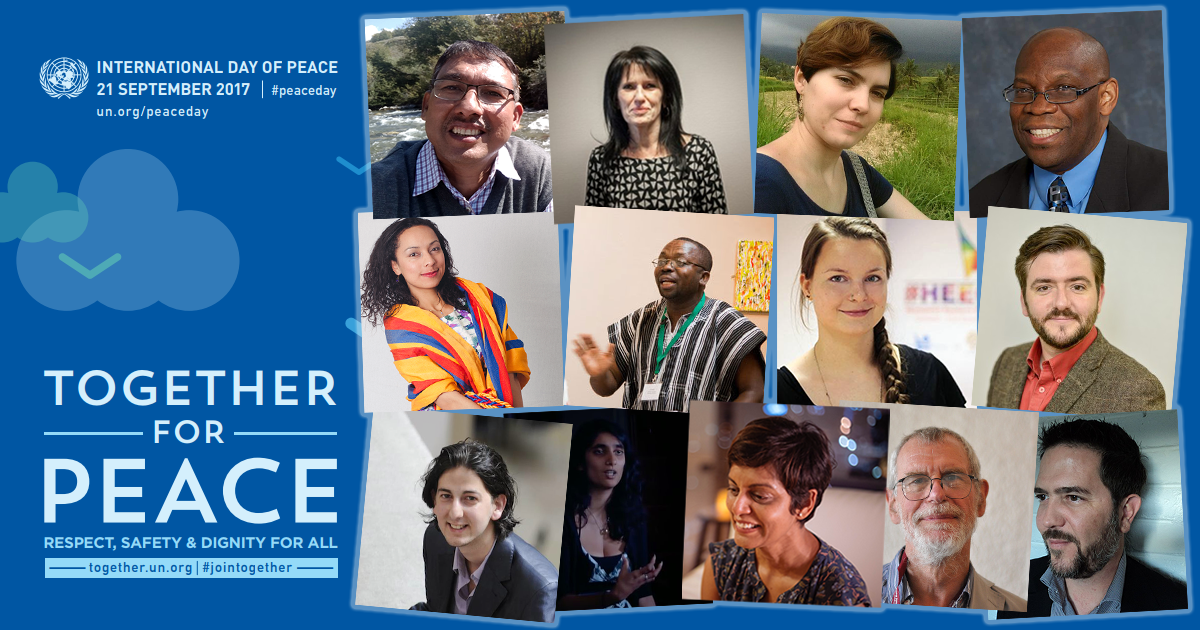

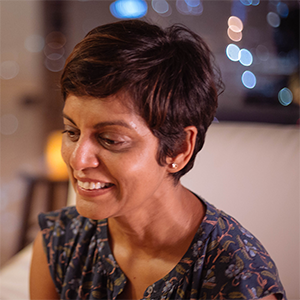 What is peace? It is a term we’ve struggled to define from the beginning of humanity.
What is peace? It is a term we’ve struggled to define from the beginning of humanity.
We celebrate Peace Day this year in the midst of chaos – one lunatic is threatening to wipe out the other with nuclear power; thousands of Yemenis are getting killed; a mass exodus of Rohingya is occurring; Syria remains a war-torn country; more than 60 million refugees have been displaced because of conflict, persecution, and hunger; religious and nationalist extremism and imperialism are triumphing, income inequality has grown to the highest level within the past half century – and the list could go on.
Maybe we need to go back to the drawing board and define what the word ‘peace’ means and who really wants it before we seek it.
— Rafida Bonya Ahmed, humanist activist, author; Visiting Research Scholar at UT-Austin

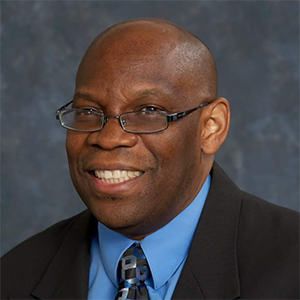 Peace is not merely the absence of violence. It is the absence of violence and tranquility accompanied by feelings of happiness, satisfaction and well-being. It is a worthy value because the alternative leads to pain, suffering and death.
Peace is not merely the absence of violence. It is the absence of violence and tranquility accompanied by feelings of happiness, satisfaction and well-being. It is a worthy value because the alternative leads to pain, suffering and death.
When I have faced conflict in my own life, I sometimes chose to just walk away and maintain the peace. As a wise man once said, “Time lost for getting even is time lost for getting ahead.” That is one way we achieve peace.
However, the best way to achieve peace is to work for human rights, gainful employment for all, fairness, equal opportunity for all, and so forth. Practical efforts for achieving peace include government aid, organizations working for fair wages and human rights, strong ethical systems, the promotion of good science, and, paradoxically, democratic governments with strong armed forces. (Sometimes peace can only be achieved by fighting just wars, like the North against the South during the Civil War to abolish slavery in the U.S.)
Humanism is about solving our differences peacefully. We know of many religious wars, but organized humanists have not settled their differences with violence.
— Norm R. Allen Jr., writer, editor, former executive director: African Americans for Humanism, author: The Black Humanist Experience

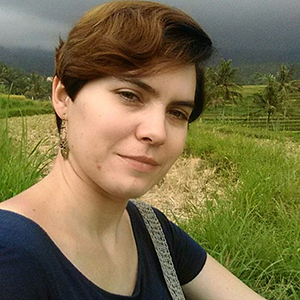 I could never understand why many of the world religions associate peace with death, as in the expressions that the dead “have finally found peace” or “should rest in peace”. To me, peace is a quality we should look for in life, as it is not an absence of war, not an absence of aggression or anger, the way they are absent in a dreadful nothingness of non-existence. Instead it is an appreciation of life, an understanding that war may not always be the best solution and a choice one makes not to fight.
I could never understand why many of the world religions associate peace with death, as in the expressions that the dead “have finally found peace” or “should rest in peace”. To me, peace is a quality we should look for in life, as it is not an absence of war, not an absence of aggression or anger, the way they are absent in a dreadful nothingness of non-existence. Instead it is an appreciation of life, an understanding that war may not always be the best solution and a choice one makes not to fight.
War has been, of course, an inherent part of the history of humanity and it is also well known to our cousins, chimpanzees. To think that people can suddenly and magically stop fighting each other is naivety. Having said that, I do believe that as humanity we should aim at peace, because we are, after all, able to oppose our instincts and do better than the chimpanzees.
I believe a peace of mind of each individual is what is first of all required to achieve peace in its wider, social sense, and examining our societies we must conclude we are still very far from succeeding in this first step. We should nevertheless try to make it happen. A peace of mind is not only achieved by ensuring livelihoods at a certain economic level and offering safety and stability. It’s also about providing answers about the nature of the universe, humanity’s place in that world, and about giving people a sense of purpose in their lives.
Curiosity, solidarity and a feeling of belonging to a global family of animals, in which every human is like a sibling to us: these qualities could form a state of mind which is needed for peace. People should stop perceiving everyone in the instinctive categories of “them” and “us”… When you forget all of these labels and start looking at another human being as a human being, nothing more and nothing less, only then you will seriously start valuing that person’s life. And only if you value life, will you stop a war.
What I perceive as the biggest obstacle on the path to peace are all the ideologies which oppose the scientific truth of our origins and all those which favour a certain group of people against others. Putting aside ideologies like fascism or totalitarian communism which in the first place don’t treasure the human life at all, the biggest problem we need to face is the exclusivity of religions, which make their followers believe they are better than everyone else. Even if they seem to teach love and friendship, they can’t let that exclusivity disappear, because they are built as memeplexes which need to oppose, or fight if necessary, the other religions (and of course the atheists or infidels even more). Obviously religion will not always lead people to war, but it won’t let them be at peace either. Maybe that’s why it offers them a promise of peace after death?
— Kaja Bryx, vice president of the Polish Rationalist Association and vice president of European Humanist Federation

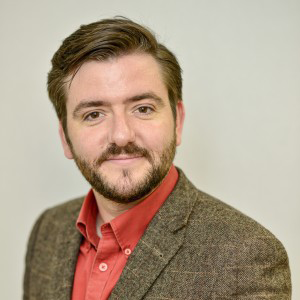 Most people want peace, and if they don’t, then living in a state of war usually corrects them (think for example of the ISIS converts in recent years who opted to fight in the name of a caliphate but soon fled, or wanted to return home, when they saw the horror entailed by that violent ideology).
Most people want peace, and if they don’t, then living in a state of war usually corrects them (think for example of the ISIS converts in recent years who opted to fight in the name of a caliphate but soon fled, or wanted to return home, when they saw the horror entailed by that violent ideology).
But we must also recognise that the state of peace means more than the absence of war. A world devoid of humanity, in which civilization had been annihilated by weapons of existential threat, would not be a world “at peace”. A state of peace means people living together despite differences, which means they must be talking about their differences openly and honestly in an ‘open society’. A state of peace means cooperating together, which means society will not be static, it will be evolving, and there will be progress, which must be worked for. A state of peace exists not in a vacuum but within an environment, so our society must be sustainable, our progress must be responsible and prudential.
Peace, then, is not an abstract harmony that we can hope will descend upon us by wishing for it. It is something that will prevail – and can only be sustained – when our most universal and necessary human values are being fulfilled.
— Andrew Copson, president of the International Humanist and Ethical Union (IHEU) and chief executive of Humanists UK

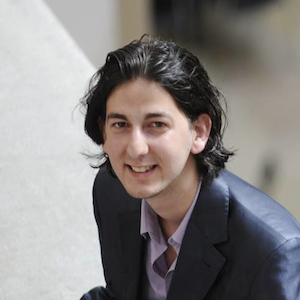 Peace is not the absence of all conflicts. Peace means that conflicts are basically carried out without violence.
Peace is not the absence of all conflicts. Peace means that conflicts are basically carried out without violence.
Peace is important because in its absence there can be no dialogue, therefore only destruction and one image of destruction is war as we know it, see it in other parts of the world, or imagine it.
The major conflict in my life was the conflict between the religion I was born into with its societal social contract. The moment I left Islam it was the moment I fell out of the social contract, and this results in a conflict which unfortunately was carried out with violence. Therefore, in order to overcome this conflict, I became aware that we need to establish a new social contract which is not based on religion but humanistic Enlightenment values, which guarantee the individual freedom of all members of the community or society regardless of religious or political belief. And that is what IHEU works for.
I may seem a bit idealistic here, but I believe peace needs global citizens, and a charter of rights for each and every one of us. It means we need to agree on a moral ground which all humanity can share: the universality of human rights, regardless of religion, culture or ethnicity. This concept is at the core of the universal declaration of human rights and the Enlightenment. The United Nations can help the world achieve peace because (at least theoretically) it aims at the promotion of dialogue and universal human rights.
— Kacem El Ghazzali, secular activist and occasional IHEU representative at Geneva

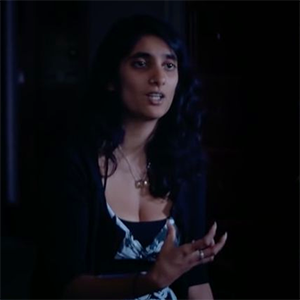 Peace is community cohesion. When examining some of the most appalling genocides, the Holocaust, Rwandan, Bosnia and the likes, one of the very first tactics used is to divide communities.
Peace is community cohesion. When examining some of the most appalling genocides, the Holocaust, Rwandan, Bosnia and the likes, one of the very first tactics used is to divide communities.
The world is a divided place, with crises and conflict going on everywhere. The Rohingya crisis, Syrian displacement, Yemen, the Israel-Palestine conflict, the South Sudan humanitarian crisis, and many more. But we turn a blind eye to them and focus on our efforts to make our lives more comfortable.
When one loves and cares for someone, they could never dream of harming them. Love, compassion and cohesion are missing in the world today. Until we successfully bring communities together, to look beyond their differences, we will never be successful in creating a more peaceful world.
Until we are all viewed as equal citizens of the world, there will be no peace.
— Sadia Hameed, spokesperson for Council of Ex Muslims of Britain

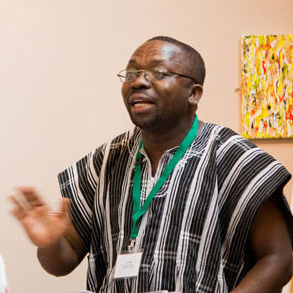 The term peace is difficult to define. Often described as an absence of war, that is armed conflict. Such a definition is a narrow one. Wars do not always involve arms in the literal sense. One may not be involved in any armed conflict but is still not at peace.
The term peace is difficult to define. Often described as an absence of war, that is armed conflict. Such a definition is a narrow one. Wars do not always involve arms in the literal sense. One may not be involved in any armed conflict but is still not at peace.
Peace is a state of the mind; a state of relative personal or collective content, happiness and well-being. Peace is relative because life has many sides and no one is totally and comprehensively at peace in every aspect of life and at every point in time. Thus there is no perfect peace.
Still peace is a worthwhile pursuit because it is necessary for human existence and flourishing. Peace is a prerequisite for progress. And human beings can achieve peace by being imaginative about solving human problems and confronting existential challenges. Humanistically speaking, peace is vital for the realization of happiness in the here and now. It is a resource that is needed in living to its fullness this only life we have.
— Leo Igwe, human rights advocate, activist against witchcraft accusations, Distinguished Services to Humanism Award recipient 2017

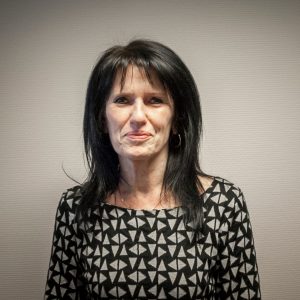 Peace is not only the absence of conflict or war. Peace is a state of mind that implies one searches for compromise rather than conflict, settlement rather than blunt opposition, interaction rather than dissociation.
Peace is not only the absence of conflict or war. Peace is a state of mind that implies one searches for compromise rather than conflict, settlement rather than blunt opposition, interaction rather than dissociation.
Peace is a personal attitude towards everything and everyone, it’s a way of handling difficult, complex and stressful encounters in a spirit of construction rather than destruction and conflict. Peace is also a way to behave in group, a way to approach others, a way to work and build interactions.
Peace is what we all crave for, but could not yet achieve. It is one of the most beautiful prospects for humanity, that we all keep as our aim in our work and progress.
Peace is the core business of Humanists, who propose an open and respectful set of moral values and means to approach life. Humanism is about peace and freedom for all.
— Anne-France Ketelaer, vice-president of the International Humanist and Ethical Union (IHEU), secretary-general of deMens.nu

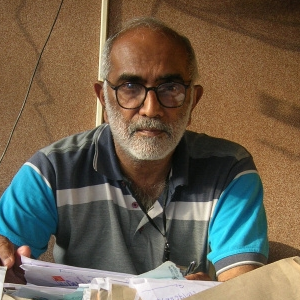 Coming from a region which has seen conflicts between groups of followers of religions due to anything from a perceived desecration of a place of worship, to two people born to parents following different religions being seen together, I learnt that peace in society can be disturbed by various forces who want to derive benefits from such conflicts. Again at the national level we have seen wars between our country and our neighbours.
Coming from a region which has seen conflicts between groups of followers of religions due to anything from a perceived desecration of a place of worship, to two people born to parents following different religions being seen together, I learnt that peace in society can be disturbed by various forces who want to derive benefits from such conflicts. Again at the national level we have seen wars between our country and our neighbours.
Peace at every level can be achieved by making human beings accept that others can be different. Tolerance of the other point of view is the only way to achieve that. People should be taught to tolerate opinions and practices of others as long as they do not infringe over the human rights of others.
Humanism stands for peace as its basic tenet that all humans are equal and that everyone has a right to happiness, and upholding human rights as the best guarantor of peace for all humankind. When all are considered as equal, and the views of all are to be accepted, then peace naturally follows. Violation of human rights of anyone is violence and that has no place in a peaceful society.
Peace is destroyed by those who want to serve their own vested interests by promoting conflicts among various social groups, raising emotional, cultural, religious, or territorial issues. They create a ‘them and us’ situation – and they are the only ones who can protect us against them! Equality in all spheres of life shall raise the physical, mental and emotional well-being of people, and that will lead to peace. In fact we can see that the more egalitarian societies where human rights are respected and protected are more peaceful than those where their violation, and the exploitation of the weak, is rampant. So, peace, like conflict, cannot survive in a vacuum. It has to be a feature of a society where there is equality and respect for human rights.
— Narendra Nayak, president of the Federation of Indian Rationalist Associations

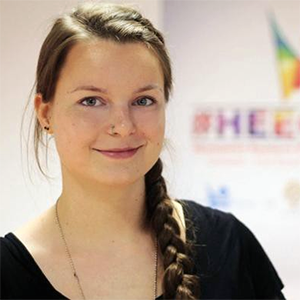 When do we feel at peace? Personally, to feel at peace I need to live according to my values.
When do we feel at peace? Personally, to feel at peace I need to live according to my values.
I must live in a society that lets me do this, and have the integrity to live my values instead of just talking about them.
This of course includes how I treat other people. But there is another side to it: Freedom of thought and speech. Can I say what I think? If I am silenced in whatever way or have to lie, I do not feel at peace.
So I am working towards a world in which everybody has this freedom and can express themselves as well as openly question what others say without being pressured to stay silent.
— Marieke Prien, president of the International Humanist and Ethical Youth Organisation (IHEYO)

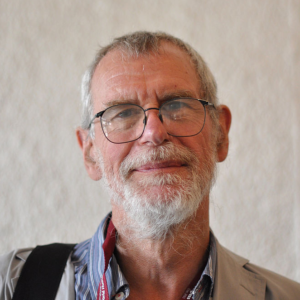 War thrives on the dehumanization of our follow human beings. An essential part of the training of soldiers is desensitizing them, overcoming their natural inhibitions against killing or maiming people. Political support for war depends on stereotyping the enemy, dehumanizing them so that they are seen as just ‘foreigners’, ‘communists’, ‘terrorists’, completely alien, not real people.
War thrives on the dehumanization of our follow human beings. An essential part of the training of soldiers is desensitizing them, overcoming their natural inhibitions against killing or maiming people. Political support for war depends on stereotyping the enemy, dehumanizing them so that they are seen as just ‘foreigners’, ‘communists’, ‘terrorists’, completely alien, not real people.
A constant theme in the literature of war, historical and literary, is the scene where a soldier encounters, perhaps kills, an enemy combatant and then becomes aware, by talking to him, or by looking through the papers and photos of the dead man, that the enemy is a human being just like himself.
Essential to creating a culture of peace, then, is the activity of bringing people together, sharing human experiences, overcoming stereotypes, promoting the awareness of our shared humanity. And that’s humanism.
— Richard Norman, Emeritus Professor of Moral Philosophy at the University of Kent, UK

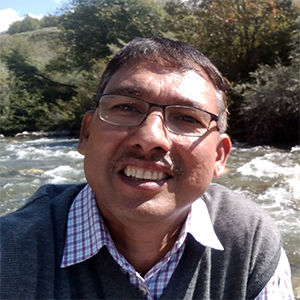 Peace is the need of the hour, but it will not be possible without strict implementation of rule of law as per international legal instruments.
Peace is the need of the hour, but it will not be possible without strict implementation of rule of law as per international legal instruments.
But laws differ in different countries. In theocratic societies, the law may prohibit free expression as blasphemy. In democracies like India, cow-lynching and beef-eating may be banned, but the ban in principle violates my right to food choices.
Therefore, peace may not be achieved if national laws are framed in a way that violate minority rights, or even our rights to choice and to dissent.
We feel that no peace could be attained without societies being inclusive and respecting the idea of social justice, which cannot be achieved without understanding historic wrongs. Today, many powerful, dominant communities are made to feel that they too have been victimised and denied rights, and so the political class dilutes the whole agenda of social justice.
Once we understand that the world is diverse, and each of us enjoys our own diversity, then we will see it is not a burden but a thing to celebrate. Once we agree that nothing is final and all religious books and laws can be critiqued, it does not mean that we are deliberately offending someone, and disagreeing does not mean we have become enemies. Disagreements can be democratically resolved, or even left alone if that does not violate the basic human rights of the people.
— Vidya Bhushan Rawat, humanist and human rights defender based in Delhi, India

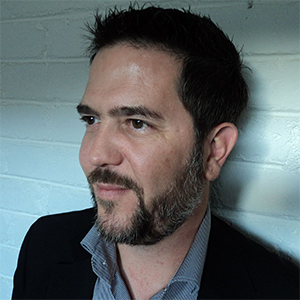 Life is complicated enough even for those of us who are fortunate enough to live in an environment free of conflict. Demands on our time, attention, and financial resources make it difficult enough to flourish. Flourishing, or living a better life, is not only about our own happiness, but ideally also about having the energy and resources to contribute to improving the welfare of others. And if even those of us living in relatively conflict-free environments struggle to fulfill our potential and to help others do the same, it is perhaps inconceivably difficult to imagine the challenges of doing so in an environment where one’s physical safety is under threat, whether that threat be from war or the less-dramatic – but nevertheless significant – impediments presented by bigotry and intolerance.
Life is complicated enough even for those of us who are fortunate enough to live in an environment free of conflict. Demands on our time, attention, and financial resources make it difficult enough to flourish. Flourishing, or living a better life, is not only about our own happiness, but ideally also about having the energy and resources to contribute to improving the welfare of others. And if even those of us living in relatively conflict-free environments struggle to fulfill our potential and to help others do the same, it is perhaps inconceivably difficult to imagine the challenges of doing so in an environment where one’s physical safety is under threat, whether that threat be from war or the less-dramatic – but nevertheless significant – impediments presented by bigotry and intolerance.
Interpersonal and intergroup conflict is an obvious handbrake to human and societal flourishing, and it serves all of our interests to promote and protect peace whenever and wherever we can.
— Jacques Rousseau, lecturer in critical thinking and ethics at the School of Management Studies at the University, Cape Town, founder and chair of the Free Society Institute, South Africa.

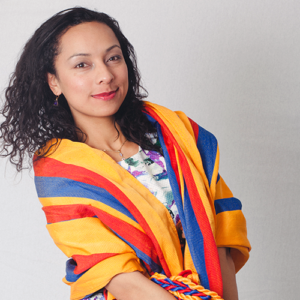 Peace for me is a new path that all Colombians have started on; it was our grandparents’ dream and now is our responsibility to build it. For me, we can build peace through the revolution of small things, every day, at every time, respecting each other, empowering women, and recognising the value of every human being, especially if he/she is different from me.
Peace for me is a new path that all Colombians have started on; it was our grandparents’ dream and now is our responsibility to build it. For me, we can build peace through the revolution of small things, every day, at every time, respecting each other, empowering women, and recognising the value of every human being, especially if he/she is different from me.
Peace is possible if we dream it, if we work on it, together from every part of the world where women are willing to do it, because women are the main peacebuilders.
— Sofia Vinasco-Molina, peacebuilder with the Truth, Memory and Reconciliation Commission of Colombian Women in the Diaspora (TMRC), member of Atheist Bogotá, Bogotà Atea